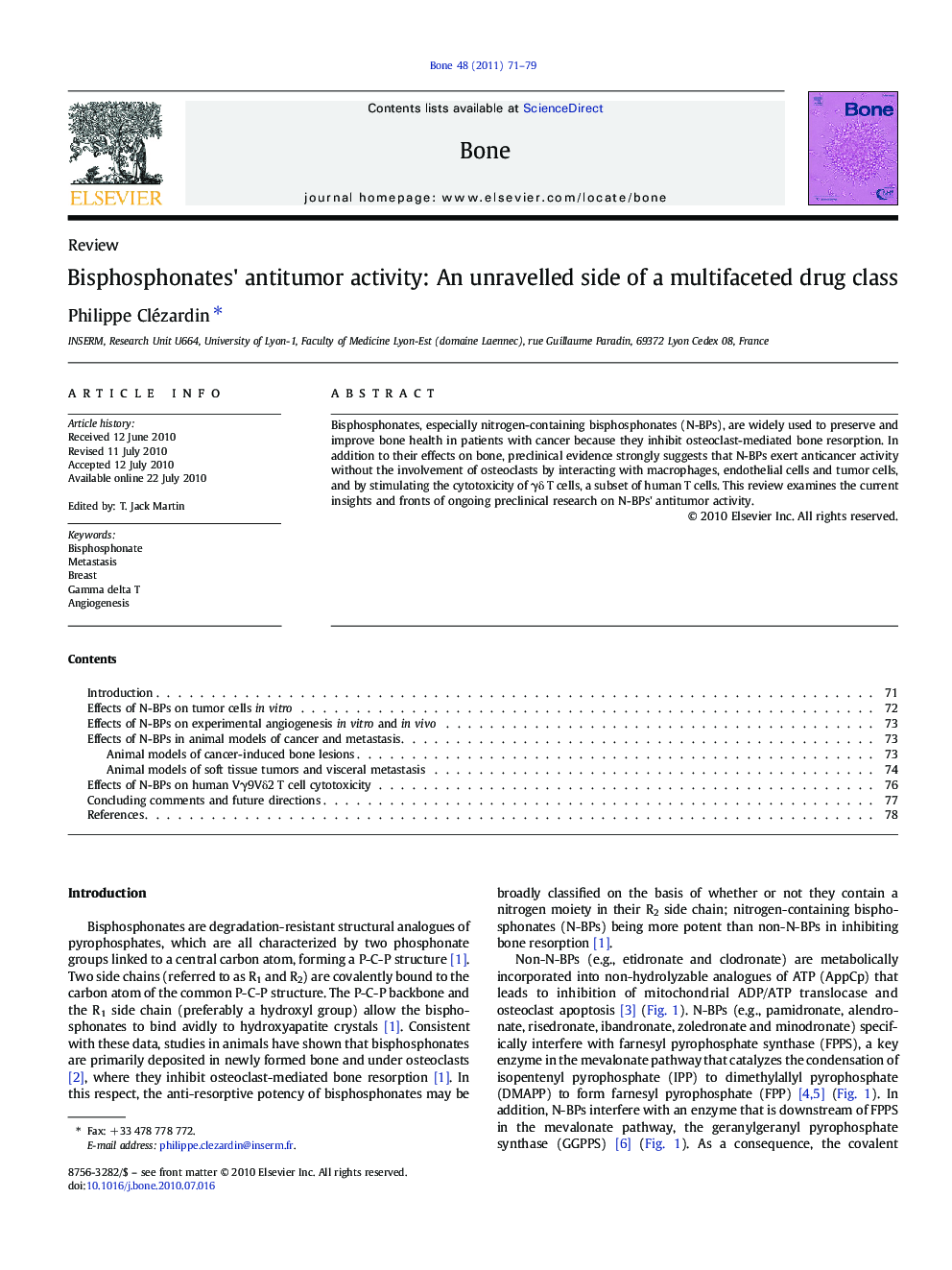| Article ID | Journal | Published Year | Pages | File Type |
|---|---|---|---|---|
| 2779814 | Bone | 2011 | 9 Pages |
Abstract
Bisphosphonates, especially nitrogen-containing bisphosphonates (N-BPs), are widely used to preserve and improve bone health in patients with cancer because they inhibit osteoclast-mediated bone resorption. In addition to their effects on bone, preclinical evidence strongly suggests that N-BPs exert anticancer activity without the involvement of osteoclasts by interacting with macrophages, endothelial cells and tumor cells, and by stimulating the cytotoxicity of γδ T cells, a subset of human T cells. This review examines the current insights and fronts of ongoing preclinical research on N-BPs' antitumor activity.
Related Topics
Life Sciences
Biochemistry, Genetics and Molecular Biology
Developmental Biology
Authors
Philippe Clézardin,
